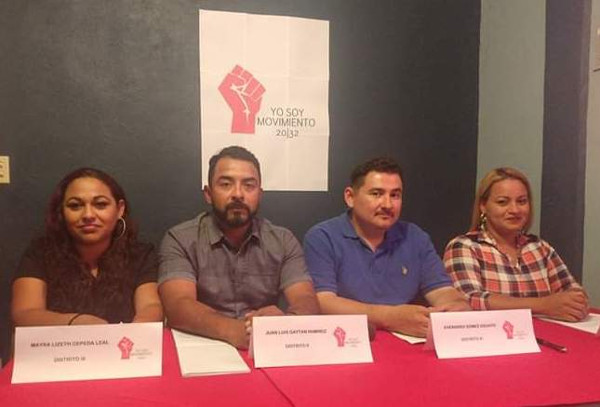
PHOTO/DONATED
RIO GRANDE VALLEY, TX — On January 12, 2019 seventy thousand maquiladoras workers in the northern region of Tamaulipas, Mexico went on strike for the first time in decades, chanting “unity and join the walkout.” (Maquiladoras are foreign-owned factories in Mexico where imported parts are assembled by low wage workers into products for export.)
The workers’ demands were basic. The Mexican federal labor commission increased the federal minimum wage by 20% and a one-time 32% bonus. It’s from here that the demand of “20/32” derives. The strike also inspired a wildcat strike wave that spread beyond factories to supermarkets and other employers, with all the workers demanding “20/32.”
According to the federal labor Secretary Luisa M. Alcalde, the minimum wage increase would be higher in the northern border states due to the free-trade zones and the lower taxes for the big multinational corporations.
In one week of the strike, the maquiladora industry lost $20 million. It directly affected the big three automakers Ford, GMC and Chrysler. The majority of the maquiladora employers were forced to come to an agreement with the striking workers on February 1.
Yet there were some employers who preferred to close their factories instead of giving the workers the federal minimum wage increase set by the federal labor commission of Mexico.
The strike was led and started by the rank file of the border maquiladoras. In the process, other smaller plants and factories were left out, like the Spellman, Tapex, Toyoda, Gosel, and Coca-Cola workers who are paid $17 dollars per week and who work 10-to-15-hour days.
These workers have become the most militant and conscious workers. They have become the real leaders of the 20/32 Movement. To control the strike and to prevent it from spreading, state riot police attacked the strikers. Three workers ended up in the hospital. Word was spreading throughout the border region, up to Reynosa and west to Juarez and El Paso, Texas.
What are the lessons for the workers of the 20/32 movement? On the one hand, it reaffirms what we already knew. It shows us that the multinational corporations and the ruling classes are global. And if we follow this line of thinking, then the workers are a global workforce, and as such, it must seek unity across borders.
This global corporate class aims to exploit the workers to the max. Our brothers and sisters in Mexico are an example of it. Even with the minimum wage increase, Mexico continues to have one of the lowest minimum wages in Latin America. Meanwhile, the corporations get a tax break in the free-trade zones. Corporations set up maquiladoras and they quickly get their increases in a matter of weeks.
The Coca-Cola workers and others in smaller factories have created a movement. The formation of the 20/32 movement is signaling the end of labor peace in Mexico. These workers know that they are the most exploited, and the ones that are a step away from being in the streets. These workers understand they have no ties to the corporate class or to any political party that wants to take over the movement and take it off its natural course.

The ruling class must stop taking away from the dispossessed class. Soon there will be nothing for everybody. Wise up, rulers.
Poverty trickles up.